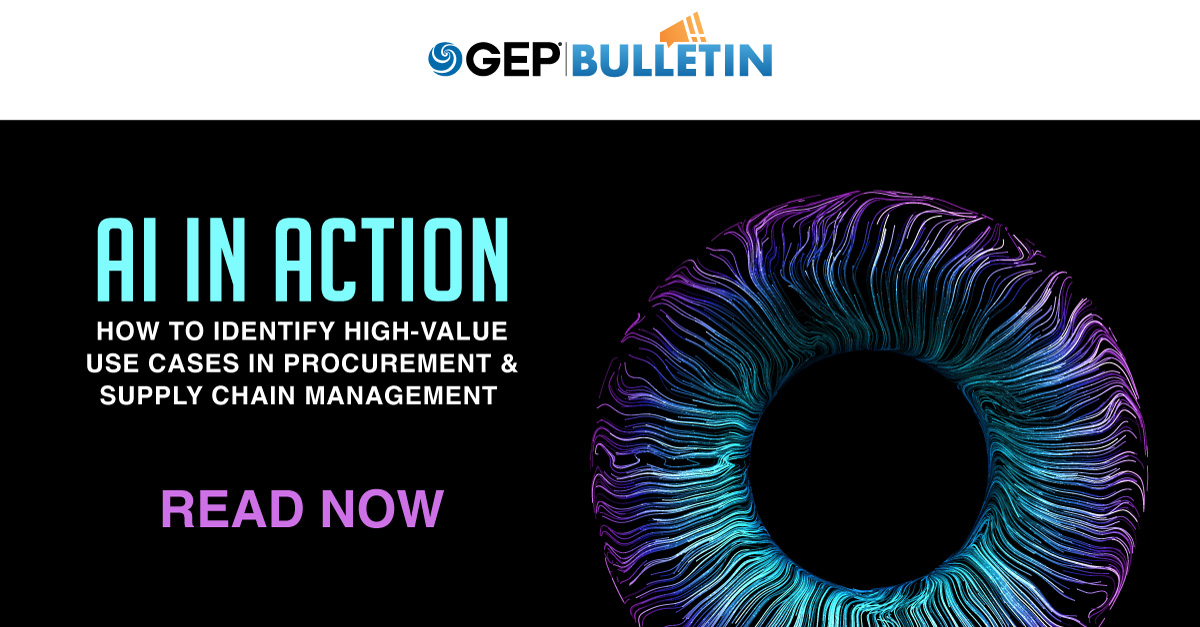
How AI Can Help Analyze RFPs and Find the Right Suppliers
- AI automates manual, repetitive RFP response tasks like monitoring tender sites to boost bid participation.
- Al tools apply consistent analytical criteria to objectively evaluate complex vendor tradeoffs across technical, commercial, and risk parameters unseen by people.
- Intelligent bid analysis and negotiation advisors augment human judgment for more comprehensive, faster and optimal supplier selections from RFP processes.
January 09, 2024 | Procurement Software
The request for proposal (RFP) is a tedious process for buyers and suppliers alike. On the buyer’s side, publishing RFPs, comparing supplier bids, evaluating vendors and negotiating contracts require extensive manual efforts even before actual work begins. For suppliers, monitoring RFP platforms across regions and service domains, understanding requirements, formulating proposals, competing on price and follow-ups are equally draining.
RFP analysis — to find the right, optimal supplier that can deliver value — requires evaluating not just upfront pricing but supplier capabilities, quality and reliability factors that impact long-term total cost of ownership (TCO). This is easier said than done, especially when juggling multiple complex RFPs. Misjudging vendor suitability during selections translates into project delays, budget overruns and stakeholder complaints down the road.
How AI is Getting Embedded Across the Entire RFP Sequence
Artificial intelligence is stepping in to automate and enhance how enterprises assess RFPs to pick the best-fit suppliers while remaining rigorous, objective and fast.
Monitoring and Detection
AI bots continuously scan multiple online RFP marketplaces to identify relevant opportunities matching a business’s categories and location. Natural language processing determines aptness.
Requirements Analysis
Algorithms break down RFP documents to extract key customer requirements across parameters such as work categories, project timelines, pricing models, SLAs, etc. This aids in answering.
Response Assistance
AI reviews historical proposal data and samples to provide guidance to teams formulating new responses, flags missing information to include and helps customize answers to unique RFP questionnaire formats. AI and machine learning improve upon past win/loss patterns.
Competitor Tracking
Intelligence tools follow competitors registering for the same RFPs and scrape publicly available data to assemble profiles of their experience, strengths and pricing models to include in comparative analyses.
Bid Scoring and Supplier Benchmarking
AI analyzes and scores proposals on multiple aspects including pains-gains fitment, project execution methodologies, supplier profile benchmarks, pricing models and contract terms sweet spots in relation to the RFP’s unique needs. This overcomes reliance on just the bill of materials costs. Al-based predictions assess risks and returns for more informed decisions.
Negotiation Support
Al tools tap into historical negotiation data and best practices to advise on bargaining tactics, trade-offs and provide price benchmarking guidance to arrive at win-win contracts. Updates documents automatically.
The AI Difference – Objectivity, Speed and Comprehensiveness
RFP analysis involves weighing conflicting selection criteria across dimensions such as technical capabilities, risks, supplier credentials and commercial models — all laden with subjectivity and oversight gaps during manual scrutiny. People struggle with information overload and latently favor experiences with incumbent partners.
AI overcomes these pitfalls with consistent evaluation metrics applied across all proposals. Al can objectively process exponentially more RFP data points, supplier variables and criteria combinations at speeds unmatched by human counterparts thanks to machine learning algorithms detecting signals and patterns. AI considers total cost models, benchmarks opponent bids, provides market intelligence, and offers an integrated lens covering the entire RFP cycle.
Rather than replace decision makers, AI augments their awareness.
The technology allows buying teams to leverage comprehensive, tailored insights in record time to negotiate optimal partnerships. Companies gain the ability to absorb more RFPs, competitive intelligence and participation opportunities that were previously missed while advisers allocate the new freed bandwidth toward high-value supplier interactions. AI thus generates a win-win environment for both buyers and suppliers.
Implementation Considerations for AI
Like any technology, real outcomes rely on the quality of foundational data. Enterprises should invest in digitizing decision knowledge from experts and documentation around past proposal evaluations, contracts, negotiations and vendor performances. Capturing win/loss causations to train AI models is equally pivotal.
Erring too much toward automation and ignoring contextual wisdom to guide AI usage also pose risks. Strategies must circle back to ultimately improving stakeholder satisfaction. Enterprises should therefore ensure that the objective they wish to achieve with AI should be to enhance and not constrain relationships.
However, once embraced suitably, AI empowers enterprises to streamline RFP participation, choice processes and contracting while boosting supplier graduation rates. The technology transforms RFP fatigue into experience enrichment for procurement officers, sales teams and bidders collectively.
Conclusion
There are times when enterprises face hurdles in balancing technical credentials, relationship dynamics, solution visions and commercial models during manual RFP scrutiny. AI, however, has the capability to apply consistent, noise-free evaluation metrics across all proposals and bidders. Backed by machine learning, the technology objectively processes exponentially more supplier data points than possible manually in limited turnaround times.





